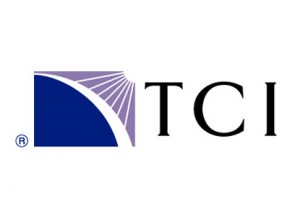“We know where you live, where your office is and who you owe money to. We are having your house watched and we are going to use this information to destroy you. You made a big mistake messing with TCI. We are the largest cable company around. We are going to see that you are ruined professionally.” — Paul Alden, TCI’s vice president and national director of franchising to an independent consultant hired to review competing cable operators for Jefferson City, Mo., in a historical example of cable industry abuse
The Federal Communications Commission last week voted unanimously to expire rules that required cable operators to make their programming available on fair and reasonable terms to competitors. Big mistake.
We have been here before. Let us turn back the clock to the days before the FCC and Congress mildly reined in the cable television industry with the types of pro-consumer regulations Chairman Genachowski and others have now let expire. Why were these rules introduced in the first place? Because years of industry abuse heaped on consumers and local communities took their toll, with high prices for poor service, outrageous corporate bullying tactics, and endless litigation to hamper or stop consumer relief.
How long will it take for the industry to resume the same abusive practices that forced the FCC and Congress to finally act once before?
The Central Telecommunications. v. Tele-Communications, Inc. (TCI): The Poster Child for Cable Industry Abuse

Tele-Communications, Inc. (TCI) was the nation’s largest cable operator. Later known as AT&T Cable, the company was eventually sold to Comcast.
Back in the 1980s, before the days of direct broadcast satellite competition like DirecTV and Dish, and years before telco-TV was allowed by law, the cable industry totally dominated the video marketplace. The only challenges came from incredibly rare competing cable TV providers or three million home satellite dish owners or wireless cable subscribers.
The industry’s only check on unhampered monopoly growth came from local authority over cable operations through the cable franchising process. If a cable company got out of control or did not offer the programming or service a community found adequate, it could offer a franchise to another company, effectively kicking bad actors out of town.
In Jefferson City, Mo., the local cable operator during the 1980s was Tele-Communications, Inc. (TCI). It had acquired the franchise in the city by buying out the original provider in the late 1970s. TCI had been buying a lot of smaller cable operators around the country under the direction of then CEO John Malone. By 1981, it had grown to the largest cable operator in the country, and few dared confront the well-heeled operator, which had a legal budget greater than the operating budgets of some communities TCI served. TCI was later acquired by AT&T Cable, which in turn sold its cable systems to Comcast, which continues to operate them to this day.
In 1980, Jefferson City officials decided it would be prudent to make sure they were getting the best cable service possible, so as TCI’s franchise agreement reached expiration, the city issued a “request for proposals” offering other cable companies a chance to bid for the right to serve the community of around 38,000. For TCI, this was tantamount to a declaration of war, and the cable company meant business. Malone equated anything threatening a permanent cable franchise for TCI as something like an act of government theft. In books later written about the events in Jefferson City, even some TCI executives admitted they were “horrified by the sleaziness” of the kind of hardball tactics involved, comparing them to a “B-movie.”
TCI revealed it would stop at nothing to keep competitors away from their territories and drag out years of litigation. Central Telecommunications, Inc., v. TCI Cablevision, Inc., revealed exactly how far TCI was willing to go:
Cajole the mayor into canceling competitive bidding. In early 1980, after Jefferson City made it known TCI might get some competition, the company quickly met with the mayor hoping to persuade him to renew TCI’s franchise without a competitive bid process, so as to avoid a “frontal attack” by competitors.
Threaten the independent consultant. In December, 1980 the city hired Elmer Smalling, an industry consultant, to independently evaluate various bids from cable operators willing to serve Jefferson City. TCI immediately began publicly attacking his qualifications in a way the court later found to be defamatory. The court case documents Paul Alden, TCI’s vice president and national director of franchising, making personal threats against Smalling. A sample:
“We know where you live, where your office is and who you owe money to. We are having your house watched and we are going to use this information to destroy you. You made a big mistake messing with T.C.I. We are the largest cable company around[.] We are going to see that you are ruined professionally.”
It got worse for Smalling. At this same time, Warner-Amex (another large cable company now known as Time Warner Cable) was a client of Smalling’s. Alden contacted Warner-Amex about Smalling. Following the threats, Smalling lost Warner-Amex as a client.
City Attorney Thomas Utterback later wrote a memo to the City Council in which he described TCI as a “relentless corporate bully.”
Threaten would-be competitors. On several occasions, from January of 1981 to the summer of 1981, Alden repeatedly telephoned Robert Brooks, chief operating officer of Teltran, a company which submitted a bid for the city’s franchise, and threatened him that unless Teltran withdrew from the bidding process, TCI would make trouble for Teltran in Columbia, Missouri, where it operated a cable television franchise. Teltran subsequently dropped out of the bidding process on the ground there was a “distasteful environment” in Jefferson City.
Another competitor, Central Telecommunications, became a defendant in a TCI lawsuit challenging the city’s right to request proposals from other cable companies. TCI argued it now had a 1st Amendment right of free speech to serve Jefferson City residents regardless of the wishes of city officials. In a wide ranging series of subpoenas, TCI demanded the bank handling Central’s financing turn over a “very wide range of potentially confidential records,” which according to Central was an effort to destroy its financing agreement with the bank.
Threaten customers. TCI warned customers that unless it won the cable franchise for Jefferson City, it would immediately shut off its cable system and leave customers without service, potentially for years, until Central built its own system from scratch. TCI officials said “it would not sell ‘one bolt’ of its system to whoever received the new franchise and that it would ‘rather have [its system] rot on the pole’ than sell it to a competitor at any cost.”
TCI’s system manager in Jefferson City told elderly residents of a senior citizens’ home that TCI would cut off service if denied a franchise, and the residents would be without television for two years pending construction of a new system because the concrete walls of their residence would not allow reception of over-the-air stations.
Lie, Lie, and Lie Some More. In one City Council meeting, Alden wildly claimed that TCI was the nation’s largest distributor of satellite dish antennas, with “an exclusive” right to sell in the state of Missouri. TCI promised that if the city renewed its franchise agreement, it would keep satellite dishes out of Jefferson City. If the franchise was not renewed, Alden promised to “flood the city with satellite dishes,” denying the city franchise fees. Alden later admitted both statements were untrue.
Threaten the mayor’s office. Although the mayor has never disclosed exactly what TCI threatened him with, the public record shows in March 1981, Alden called the mayor and threatened to turn the system off unless TCI’s franchise was renewed. TCI also filed an expensive lawsuit against Jefferson City regarding the way it handled its request for proposals.
 By the fall of that year, TCI was meeting with city attorney Utterback in secret negotiations to renew its cable franchise, in direct violation of the city’s request for proposals which required all negotiations to be open, as well as Missouri’s “sunshine laws.” By next spring, the mayor had privately notified council members he would veto any franchise renewal awarded to anyone other than TCI, which he later admitted was a condition imposed by TCI during its secret negotiations.
By the fall of that year, TCI was meeting with city attorney Utterback in secret negotiations to renew its cable franchise, in direct violation of the city’s request for proposals which required all negotiations to be open, as well as Missouri’s “sunshine laws.” By next spring, the mayor had privately notified council members he would veto any franchise renewal awarded to anyone other than TCI, which he later admitted was a condition imposed by TCI during its secret negotiations.
On January 25, 1982, the City Council provisionally awarded the franchise to… Central Telecommunications. TCI immediately refused to pay the city the prior year’s franchise fees, in excess of $60,000. It also reminded the mayor of his obligations to TCI as part of the secret franchise renewal negotiations held the prior fall. On April 20, 1982, the City Council passed the ordinance awarding a franchise to Central. The vote was six in favor and four against. The mayor vetoed the ordinance. The council then deadlocked five-to-five on awarding a franchise to TCI and the mayor cast the deciding vote in favor of that company. The next day, TCI dismissed its lawsuit against the city and paid the withheld franchise fees.
In the end, several courts upheld tens of millions in damages for Central Telecommunications, TCI’s lawsuit was dismissed at the company’s request, Mr. Alden was summarily dismissed by TCI after Malone referred to him as a “loose cannon,” and Jefferson City was stuck with several additional years of lousy service from TCI.
But TCI’s “bad corporate citizen” practices would come back to haunt the cable juggernaut, eventually failing to win assignments for two $800 million orbital slots for a direct broadcast satellite service the company proposed. After the Jefferson City experience, even the FCC could not, in good conscience, reward TCI with satellite slots it wanted for a “competing satellite service” it would sell through its own cable companies.
The memories of FCC officials are evidently short. Giving cable operators an inch has historically bought them a mile, paid for by consumers. Mandating easy to understand rules requiring cable operators sell programming to competitors on fair and reasonable terms is sound policy whether there is competition or not. Removing those rules or watering them down only promotes the kind of mischief that, when unchecked, leads to these kinds of horror stories. History need not repeat itself.


 Subscribe
Subscribe










